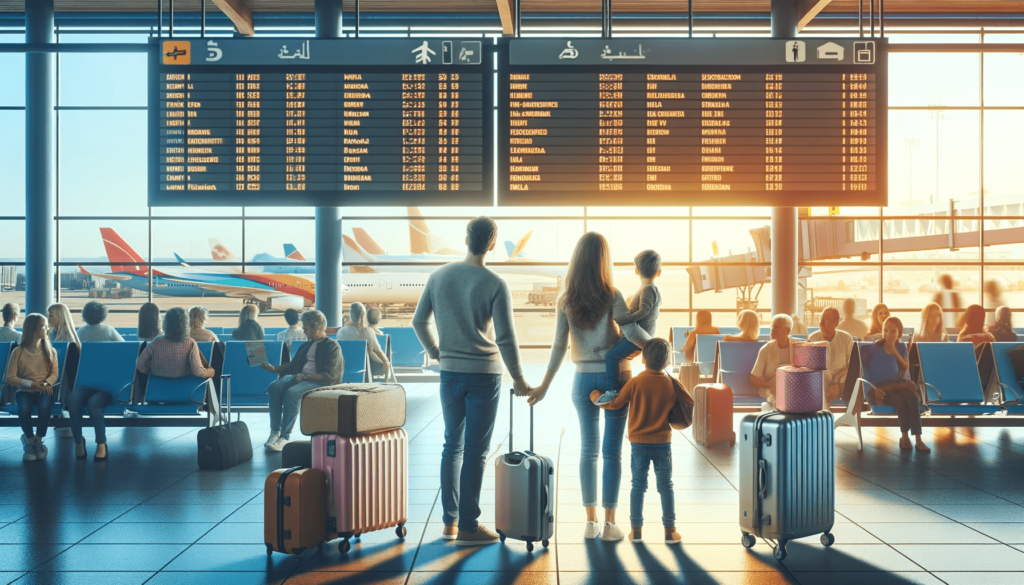
How To Move Away From The UK
With the weather as it often is in the UK, there’s no surprise that some of even the most patriotic Brits are tempted by moves ashore. If you are planning to emigrate and find a lifetime of happiness elsewhere, there are a number of things you’ll need to know and a rather a lot of things you’ll need to check off your moving overseas checklist.
Deciding Where To Emigrate From The UK
Which sun-kissed destination (or snow-kissed, depending on your preference) you end up calling home is a matter of personal choice, but there are many great options open to you.
Though Spain has been seen as the de facto expat destination for as long as most of us can remember, the sun has been setting on the Spanish dream recently, with 90,000 of the 760,000 emigrants who left Britain for Spain in 1995 moving home last year as the economy in the country dwindles.
France, meanwhile, has been seeing a significant increase in British expats, especially Paris, with approximately 20,000 of the 35,000 expat Brits in the country living in the city itself or within (reasonable) driving distance.
Australia, New Zealand and North America might also take your fancy if you are looking to begin a fresh new chapter and start a bold new adventure thousands of miles from home. The benefit of these places is that they still feel a little like home with the common language and many shared cultures and traditions, while still having lots of differences to get excited about.
Wherever you decide to sow your oats though, there are a number of important things you should consider before even thinking about leaving Old Blighty behind, let alone boarding the plane.
Do Your Homework
Be prepared to do a lot of reading and a lot of internet surfing before you move. Whilst this is an excellent resource to help you get started, you’ll want to spend as much time as possible on forums where real expats are active.
Introduce yourself, let everyone know you’re a little bit intimidated (that’s perfectly natural) and get involved. You might even end up making some new friends who can show you the ropes once you get over there.
Also make sure you’ve read up as much as possible on all of the local laws and customs. There’s a great “Know Before You Go” section on the Gov.uk site, which is designed for vacationers, but includes most of the relevant information.
Try Before You Buy
If you’ve never even visited the place you’re considering purchasing a property, it should go without saying that you should always visit an area before you begin searching for a property, especially if you’re moving overseas!
Get a feel for the place and its people, absorb yourself in the local culture and get a decent idea about how much bang you might be able to afford for your buck.
Also, familiarise yourself with the local currency so you’re aware of the financial implications of the move. Compare costs of everyday essentials to what you pay in the UK, not least food, bills and travel expenses. Some countries have higher costs of living than the UK, some have lower.
Legal
Don’t automatically go with whichever legal advisor the property developer or estate agent puts you into contact with, shop around and find the right person for you. Preferably, you would have an advisor or lawyer recommended to you by somebody impartial.
Once you have them on board, check before you leave the country that your lawyer speaks good English (communication is key) and that they understand (and conform to) the law of the land.
This includes local driving laws, of course; aside from making sure you’re driving on the correct side of the road, make sure you’re completely aware of the more specific driving laws in your new country. You’ll also need to apply for an International Driving Permit and have it renewed annually.
Another thing to consider here is your bank account. The good news is that you can keep your UK bank account if you move abroad. There will be changes to your account though, so you should contact your bank directly to check what they may be.
You may also be wondering ‘What happens to my UK pension when I move abroad?’ You will still receive the UK state pension you are entitled to from your many years of working and paying tax and national insurance here, but you won’t add to that total. For any workplace pensions, check with them directly.
Of course, legal obligations can change at the drop of a hat, so please, please ensure you check the official website of the country you are moving to in order to sense-check any information here.
Healthcare
Healthcare is different in every country, not everybody is lucky enough to have an NHS like the UK. Often, healthcare abroad is costly, especially if you don’t have insurance through your employer.
When you do move abroad, the cost of health care can be a genuine shock to the system (especially in North America), even though the warmer climate might technically be better for your overall health.
If you’re moving to the European Union, you’ll need to apply for a UK Global Health Insurance Card (GHIC) (the replacement of the former EHIC card), which will mean you’ll receive treatment at a reduced cost or for free (in some circumstances).
Australia, meanwhile, has the Medicare system, which works in much the same manner as the NHS, as do some other countries.
Remember, however, that rules are constantly changing, so do your research before you commit and always take out health insurance (though this might be a condition of you being granted a visa).
Also, be sure to pay your doctor a visit before you leave to get clued up on all necessary vaccinations and take a copy of your medical records.
Inform The Government
OK, this one should be a no-brainer, but still, you’d be surprised how many people think it’s fine to simply up and leave without letting the government know you’re no longer a British resident.
The first step should be to contact your council, the social security office and the DWP giving them your forwarding address (once you have one). You should also clear up any benefits or pension arrangements you might be dealing with. Thankfully, the Gov.uk website is a resource rich with information in this regard.
Finally, you may be asking ‘How do I tell HMRC that I’m moving abroad?’ Well, it’s pretty simple. Log onto this page of the Gov.uk site and follow the steps to fill in a P85 form. Sadly, you can’t escape the tax man even when you’re moving abroad!
On a related note, make sure you cancel all UK bills and direct debits.
Renting Your Old Home
Though some expats will sell up completely before moving abroad, many expats decide to keep their UK home and rent it out.
If you’re planning on doing this, make arrangements with a letting agent in the UK who will be able to take care of the logistics for you for a fee of between 10% and 15%.
There is also tax to consider, so make sure the HMRC knows what’s going on. You might even be able to apply for the Non-Resident Landlord Scheme, which will save you a lot of money in the long run.
Storage For Moving Abroad
Moving is one of the most stressful things a person will ever do in their lifetime. A way to significantly cut down on the stress is to hire a storage unit where you can keep your items before they’re ready to be shipped.
The best way to sort out storage is to make two lists; one of stuff you’ll need between now and the move and stuff you won’t. Simply put everything you won’t need into storage – easy!
We have a broad selection of different self storage options in the Nottingham area, including different sized storage containers for the short and long term.
On a related note, if you’re moving particularly expensive items abroad, you might want to consider insurance in case there’s any issues with the transit to your new happily ever after.
Taking Pets Abroad
Speaking of which, if you wish to take your beloved pets with you when you move, start planning their relocation early.
You’ll need to get your local vet to microchip your furry (or scaly) bundle of joy and will also need to get it immunised against rabies at least a month before you’re due to leave.
There are also countless online resources dedicated to animal transportation, so once again, do your research to make sure that your favourite non-human companion can join you in your new country.
Settling In To Your New Home Overseas
Once you’re over there, it’s important to settle not only into your new home, but into the area. Embrace the culture, and make sure if you’re working over there that you give yourself at least a week off.
Once you’re settled in, of course, you’ll no doubt start to feel like a local in no time, and don’t forget; home is where the heart is!

